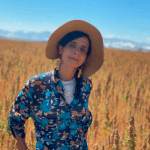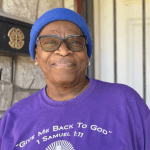Raj Shukla
Raj Shukla (he/him) is from and lives and works in Madison, Wisconsin, on Ho Chunk lands.
Raj joined River Network as President and Chief Executive Officer in June 2023, bringing 20 years of mission-focused experience to lead a national team that grows and strengthens a transformational network of water, justice, and river advocates. Raj built a career designing behavior change programs to tackle climate change, preparing candidates to win campaigns, and organizing businesses to meet social needs. Raj has led teams to build technologies that reduce greenhouse gas emissions, organize local leaders to advance ambitious water policy, and advocate for clean, free-flowing rivers in county seats, state capitols and corporate board rooms across the United States. He graduated from UW-Madison late in the 20th century. Raj also led a push to help his hometown, Madison, Wisconsin, become the first in the state to commit to 100% clean energy.
Raj served on the River Network Board of Directors from 2019 to 2023, supporting our work leading a national effort to grow Black and brown leadership in the conservation community. He was introduced to River Rally as Executive Director of River Alliance of Wisconsin, where he led a statewide team to protect and restore water in partnership with local watershed leaders.
As The Nature Conservancy’s Midwest Director of Freshwater Policy, Raj oversaw work to fortify the health of 90 percent of the nation’s surface fresh water. He collaborated with national, state, and local partners to support science-based advocacy for the protection of fresh water. His work connected equity and conservation, centering the diverse needs of communities struggling with floods and pollution.
Outside of work, Raj is a connoisseur of fried egg sandwiches, rabid Milwaukee Bucks fan, daily meditator, and mediocre drummer. In their spare time, Raj and his wife chauffeur two tweens and a teen around the neighborhood, and to the region’s rich natural areas with occasional stops at ice cream shops along the way.
Which River Network value most speaks to you?
Balance is a River Network value that resonates deeply in me. We can have a clean environment and a fair, prosperous society if we commit to holding both human ecological needs and priorities high.
What motivates you to go to work everyday?
The people who make up our network—local watershed leaders, government officials, and businesspeople dedicated to clean and healthy rivers—are all the inspiration I need. These river leaders clean up pollution. They protect communities from floods and droughts. They are the key to surviving the climate crisis. It’s an honor to support their leadership every day.
What called you to work in water?
Water surrounds me here in Wisconsin. Water is life, for sure. As the world gets warmer and society gets thirstier, water is also the source of tremendous power and influence. I was called to this work by the opportunity to ensure we use that power for the good of humanity and the environment.
Why is equity, diversity, and inclusion (EDI) important in your work?
It’s personal. There are only a few people who look like me in the constellation of environmental organizations I’ve worked with. My Black and Latino colleagues are lonelier still. If we want to create an environmental movement that represents all of us, we need an environmental community that looks like all of us.
What was your earliest memory around water?
I remember the first time I saw big waters like the Mississippi River, Lake Michigan, and the Pacific Ocean. Big water has this way of revealing your part in the universe; both infinitely small and a part of something infinitely glorious at the same time.
What was the most inspiring aspect of your work over the past year?
I had the honor of visiting with several leaders supported by River Network’s Flow Fund this spring in Michigan. This program reaches outside traditional grantmaking structures, and trusts people and projects closest to community needs to define and drive local impact.
If you didn’t work in water or conservation, what would you be doing?
I would have made an excellent professional basketball coach.
How do you think the conservation community can make the biggest impact?
Speak up, speak often!
How do you recharge outside of work?
My days are pretty much covered by kids, pets and shooting baskets. It’s a full and fun life.







